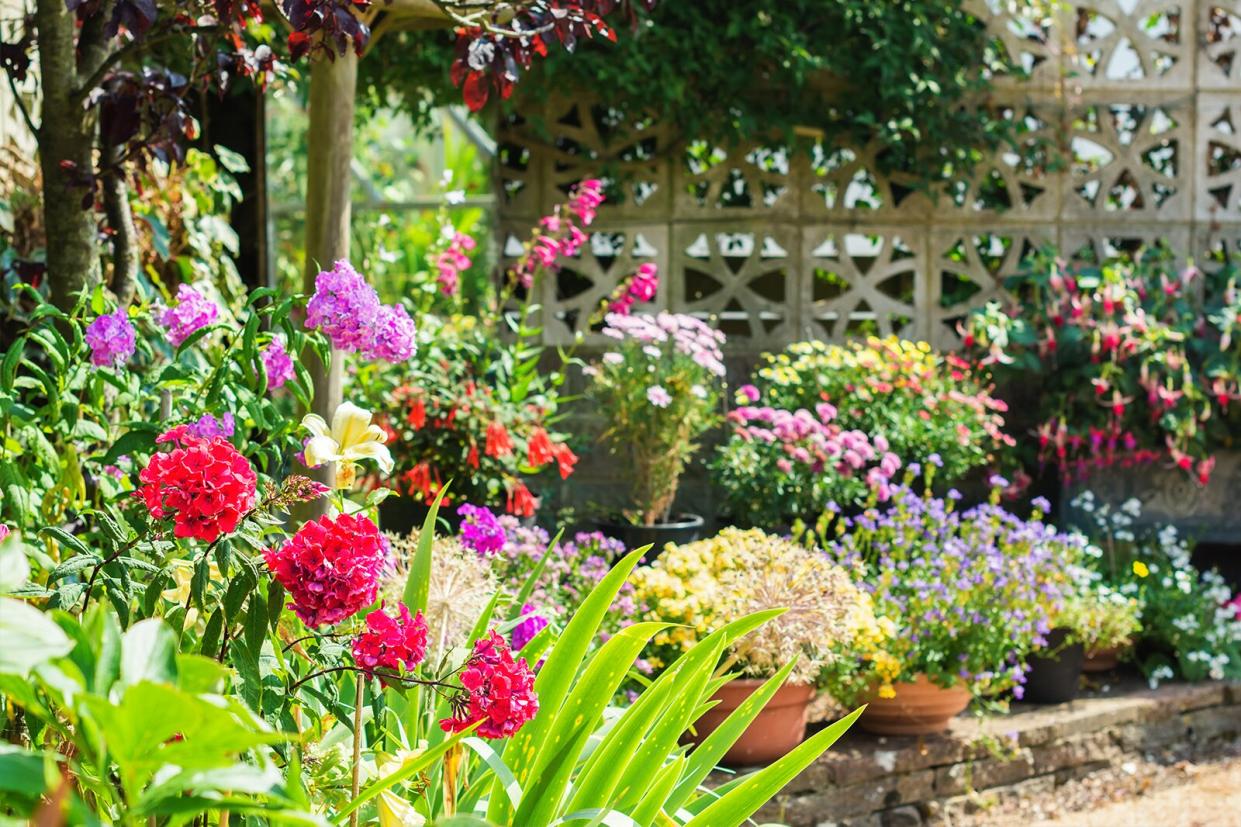A Comprehensive Start-of-Summer Gardening Checklist

Aiselin82 / Getty Images
Climbing temperatures signal the true start of the summer gardening season—and while you'll have months to tinker with your shrubs, trees, and flowers, there are a few things to achieve right at summer's start to ensure your most bountiful garden yet. Brush up on our summer gardening checklist, which will see you through the most prolific growing period of the year.
Related: Complete This Spring Gardening Checklist as the Weather Warms Up
Get Your Summer Annuals in the Ground
Yes, you need to wait until after the last frost date, in spring, to plant most annuals, but some need to be placed in the ground a bit later—towards the start of summer. "Depending on your climate, that means planting them in April, May, or early June so that they can overcome any transplant shock before peak heat," says Dan Allen, co-founder of Farmscape, California's largest urban farming company.
Organize and Sanitize Your Tools
When that first sunny, 70 degree day hits, Katie Burdett, the organic gardener behind Growing With Gertie, says you should be focusing on getting your seeds in the ground—not scraping last year's mud off your spade. That's why organizing and sanitizing your garden tools ahead of this peak is key. As for the best way to clean these yard essentials? "Sanitizing your tools with a mild bleach solution sets your plants up for a healthy season ahead," Burdett notes.
Wash Your Garden Gloves
There are few things as off-putting as sliding your hands into a pair of stiff, dirty gloves from last season. So, on the same day you streamline your garden arsenal, examine your trusty pair. "Run them through the cold cycle in the washing machine and hang them to dry," Burdett says.
Apply Compost or Fresh Mulch
While spring is the ideal time to add nutrients to the soil, you may want to wait until closer to summer to re-up your garden's compost and mulch supplies, especially if you're introducing new plants into the mix. However, you don't want to wait too long, says Burdett. "Fresh mulch can smother emerging weeds and breathe new life into your garden beds," she says, which is why she recommends composting and mulching at the dawn of the season, before those pesky weeds have a chance to emerge.
Weed, Weed, Weed
Speaking of weeds: Getting a jump start on troublesome sprouts at the start of summer will make your life easier as the heat of the season sets in. "When weeds do emerge, it's best to catch them early—you don't want them going to flower and making for more work later," shares Allen. "Hula hoes and similar weeding tools are great, but if you're committed to getting weeds out at the root, consider adding a hori hori garden knife to your garden shed if you don't have one already."
Make Sure You're Ready for Harvest
Now is as good a time as any to ensure you have everything you need once your fruit and vegetable crops begin producing. "If you're an edible gardener who preserves the harvest, stock up on canning supplies and consider using up last year's preserves in the freezer to make room for this year's bounty," Burdett says.
Clean Up Your Garden Beds
Once temperatures are consistently above 50 degrees—which, depending on your climate, might fall during the spring or summer seasons—rake leaves and debris from garden beds and add them to your compost pile. This allows you to have compost ready early, so you can apply it to the base of your plants as they grow, and also helps you establish a supply for the remainder of the season, Burdett shares.
Replace Your Hose
You can't make your summer garden grow without access to water. "Warmer weather may require more hand watering depending on your rainfall," says Allen. If your hose didn't survive winter or spring, it's definitely time to hook up a new one—or several, should your yard be expansive enough to require multiple. Be sure your hose extends to the majority of your property, or check on any in-the-ground irrigation nozzles or sprinkler systems to make sure they are functioning properly before temperatures climb too high.

